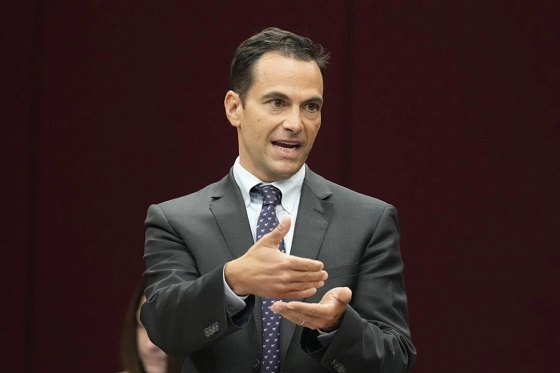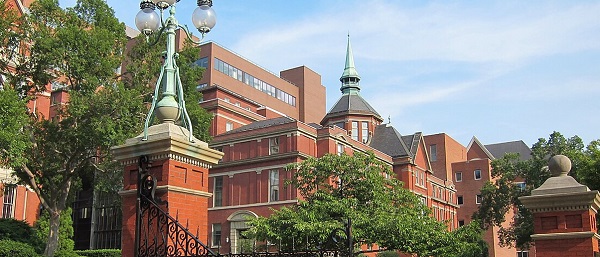Uncategorized
Trudeau not doing the little things to make life affordable

From the Canadian Taxpayers Federation
Author: Franco Terrazzano
Figuring out how to make life more affordable for Canadians shouldn’t be like unravelling Einstein’s theory of relativity.
If Prime Minister Justin Trudeau won’t do the big things to make life more affordable, he could at least do the little things.
“We know Canadians are facing challenging times right now, people are squeezed between the cost of groceries, rents,” Trudeau said during a cabinet retreat in Montreal aimed at “bringing down the cost of living.”
Trudeau knows “people are squeezed” because his tax hikes are some of the things that are doing the squeezing.
Take the carbon tax. Trudeau may never scrap his carbon tax, but he could at least not raise it again on April 1.
Even after the rebates, average families will be out hundreds of dollars this year because of the higher heating bills, gas prices, inflation and the economic damage wrought by the carbon tax, according to the Parliamentary Budget Officer.
Governments of all political stripes have paused fuel taxes to provide relief.
British Columbia’s New Democrats delayed their carbon tax hike during the pandemic. Manitoba’s NDP government suspended its fuel tax. Newfoundland and Labrador’s Liberals are also providing fuel tax relief, and so have the Conservative governments in Alberta and Ontario.
The United Kingdom, Sweden, Australia, South Korea, the Netherlands, Germany, Norway, India, Ireland, Israel, Italy, New Zealand and Portugal also provided fuel tax relief.
To add insult to injury: the feds charge their sales tax on top of the carbon tax. That’s right. The federal government applies its sales tax after all the per-litre taxes are added.
This tax-on-tax is costing Canadians about $500 million this year, according to the PBO. By the end of 2030, the GST on the carbon tax alone will have cost Canadians $6.2 billion.
Ending the tax-on-tax is a simple way to save Canadians billions when fuelling up or heating their homes.
Trudeau knows taxes make it more expensive to stay warm during the winter. Otherwise, why would he have taken the carbon tax off home heating oil for three years?
That political ploy was an attempt to help Atlantic Canadians amid tanking poll numbers in this typical Liberal stronghold.
But 97 per cent of Canadian families use other forms of energy to heat their homes. Trudeau should extend the relief he provided to Atlantic Canadians to everyone by taking the carbon tax off all forms of home heating. That would save the average family using natural gas about $1,100 over three years.
Trudeau can also give farmers relief and ease grocery prices by making sure the original Bill C-234 becomes law this year, which would remove the carbon tax from the natural gas and propane used on farms.
The House of Commons already passed this relief twice, but it still isn’t law because of shenanigans in the Senate.
The carbon tax on natural gas and propane that’s used to heat barns and dry grain will cost farmers $1 billion by 2030, according to the PBO.
By making it more expensive for farmers to grow food, the carbon tax makes it more expensive for Canadians to buy food.
There’s one more easy way for Trudeau to provide relief: stop his upcoming 4.7 per cent alcohol tax hike.
Last year, the feds capped the annual increase at two per cent. Trudeau shouldn’t have hiked the tax at all, but the smaller increase reduced the tax burden by $100 million. At a time when both consumers and businesses are struggling, freezing the alcohol tax is the least Trudeau could do.
The Trudeau government doesn’t need an expensive get-away in Montreal to figure out how to make life more affordable. There’s a simple solution: stop taking so much money from Canadians.
Uncategorized
New report warns WHO health rules erode Canada’s democracy and Charter rights

The Justice Centre for Constitutional Freedoms has released a new report titled Canada’s Surrender of Sovereignty: New WHO health regulations undermine Canadian democracy and Charter freedoms. Authored by Nigel Hannaford, a veteran journalist and researcher, the report warns that Canada’s acceptance of the World Health Organization’s (WHO) revised International Health Regulations (IHR) represents a serious erosion of national independence and democratic accountability.
The IHR amendments, which took effect on September 19, 2025, authorize the WHO Director-General to declare global “health emergencies” that could require Canada to follow directives from bureaucrats in Geneva, bypassing the House of Commons and the will of Canadian voters.
The WHO regards these regulations as “binding,” despite having no ability or legal authority to impose such regulations. Even so, Canada is opting to accept the regulations as binding.
By accepting the WHO’s revised IHR, the report explains, Canada has relinquished its own control over future health crises and instead has agreed to let the WHO determine when a “pandemic emergency” exists and what Canada must do to respond to it, after which Canada must report back to the WHO.
In fact, under these International Health Regulations, the WHO could demand countries like Canada impose stringent freedom-violating health policies, such as lockdowns, vaccine mandates, or travel restrictions without debate, evidence review, or public accountability, the report explains.
Once the WHO declares a “Pandemic Emergency,” member states are obligated to implement such emergency measures “without delay” for a minimum of three months.
Importantly, following these WHO directives would undermine government accountability as politicians may hide behind international “commitments” to justify their actions as “simply following international rules,” the report warns.
Canada should instead withdraw from the revised IHR, following the example of countries like Germany, Austria, Italy, Czech Republic, and the United States. The report recommends continued international cooperation without surrendering control over domestic health policies.
Constitutional lawyer Allison Pejovic said, “[b]y treating WHO edicts as binding, the federal government has effectively placed Canadian sovereignty on loan to an unelected international body.”
“Such directives, if enforced, would likely violate Canadians’ Charter rights and freedoms,” she added.
Mr. Hannaford agreed, saying, “Canada’s health policies must be made in Canada. No free and democratic nation should outsource its emergency powers to unelected bureaucrats in Geneva.”
The Justice Centre urges Canadians to contact their Members of Parliament and demand they support withdrawing from the revised IHR to restore Canadian sovereignty and reject blind compliance with WHO directives.
Uncategorized
CNN’s Shock Climate Polling Data Reinforces Trump’s Energy Agenda


From the Daily Caller News Foundation
As the Trump administration and Republican-controlled Congress move aggressively to roll back the climate alarm-driven energy policies of the Biden presidency, proponents of climate change theory have ramped up their scare tactics in hopes of shifting public opinion in their favor.
But CNN’s energetic polling analyst, the irrepressible Harry Enten, says those tactics aren’t working. Indeed, Enten points out the climate alarm messaging which has permeated every nook and cranny of American society for at least 25 years now has failed to move the public opinion needle even a smidgen since 2000.
Appearing on the cable channel’s “CNN News Central” program with host John Berman Thursday, Enten cited polling data showing that just 40% of U.S. citizens are “afraid” of climate change. That is the same percentage who gave a similar answer in 2000.
Dear Readers:
As a nonprofit, we are dependent on the generosity of our readers.
Please consider making a small donation of any amount here.
Thank you!
Enten’s own report is an example of this fealty. Saying the findings “kind of boggles the mind,” Enten emphasized the fact that, despite all the media hysteria that takes place in the wake of any weather disaster or wildfire, an even lower percentage of Americans are concerned such events might impact them personally.
“In 2006, it was 38%,” Enten says of the percentage who are even “sometimes worried” about being hit by a natural disaster, and adds, “Look at where we are now in 2025. It’s 32%, 38% to 32%. The number’s actually gone down.”
In terms of all adults who worry that a major disaster might hit their own hometown, Enten notes that just 17% admit to such a concern. Even among Democrats, whose party has been the major proponent of climate alarm theory in the U.S., the percentage is a paltry 27%.
While Enten and Berman both appear to be shocked by these findings, they really aren’t surprising. Enten himself notes that climate concerns have never been a driving issue in electoral politics in his conclusion, when Berman points out, “People might think it’s an issue, but clearly not a driving issue when people go to the polls.”
“That’s exactly right,” Enten says, adding, “They may worry about in the abstract, but when it comes to their own lives, they don’t worry.”
This reality of public opinion is a major reason why President Donald Trump and his key cabinet officials have felt free to mount their aggressive push to end any remaining notion that a government-subsidized ‘energy transition’ from oil, gas, and coal to renewables and electric vehicles is happening in the U.S. It is also a big reason why congressional Republicans included language in the One Big Beautiful Bill Act to phase out subsidies for those alternative energy technologies.
It is key to understand that the administration’s reprioritization of energy and climate policies goes well beyond just rolling back the Biden policies. EPA Administrator Lee Zeldin is working on plans to revoke the 2010 endangerment finding related to greenhouse gases which served as the foundation for most of the Obama climate agenda as well.
If that plan can survive the inevitable court challenges, then Trump’s ambitions will only accelerate. Last year’s elimination of the Chevron Deference by the Supreme Court increases the chances of that happening. Ultimately, by the end of 2028, it will be almost as if the Obama and Biden presidencies never happened.
The reality here is that, with such a low percentage of voters expressing concerns about any of this, Trump and congressional Republicans will pay little or no political price for moving in this direction. Thus, unless the polls change radically, the policy direction will remain the same.
David Blackmon is an energy writer and consultant based in Texas. He spent 40 years in the oil and gas business, where he specialized in public policy and communications.
-

 Energy1 day ago
Energy1 day agoIt should not take a crisis for Canada to develop the resources that make people and communities thrive.
-

 Alberta2 days ago
Alberta2 days agoFederal budget: It’s not easy being green
-

 Alberta2 days ago
Alberta2 days agoChatGPT may explain why gap between report card grades and standardized test scores is getting bigger
-

 Business2 days ago
Business2 days agoParliamentary Budget Officer begs Carney to cut back on spending
-

 Education2 days ago
Education2 days agoJohns Hopkins University Announces Free Tuition For Most Students
-

 Business2 days ago
Business2 days agoWill Paramount turn the tide of legacy media and entertainment?
-

 Energy1 day ago
Energy1 day agoA picture is worth a thousand spreadsheets
-

 Artificial Intelligence13 hours ago
Artificial Intelligence13 hours agoAI Faces Energy Problem With Only One Solution, Oil and Gas



